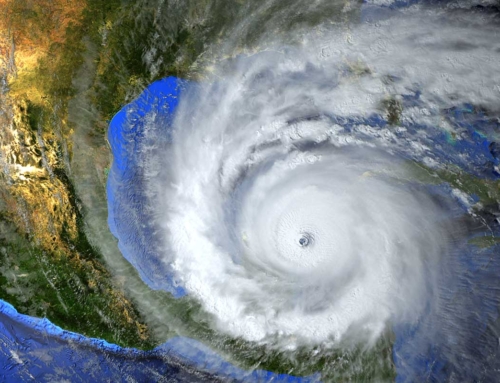
National Security Agency
NSA
Feel like you are being watched? Well, sorry to say, there is the possibility. The National Security Agency (NSA) is a federal security service of the United States, responsible for signals intelligence gathering, analysis, and surveillance. The NSA, along with the Central Intelligence Agency (CIA) and the Defense Intelligence Agency (DIA), are the big three of U.S. intelligence organizations.
The most “infamous of the covert activities” from the U.S. intelligence community was a program code-named PRISM.
PRISM was a secret, illegal, and unconstitutional surveillance program used by the NSA to obtain intelligence on private citizens from their internet communications. PRISM collected stored internet communications by asking companies like Google to provide data that matched the court-approved search terms set forth in Section 702 of the FISA Amendments Act of 2008. With these PRISM requests, the NSA could target communications that were encrypted while traveling across the internet backbone, target data discarded by filtering systems earlier, and obtain data that is easier to manage than bulk collection.
In a secret court order, the NSA was authorized to collect phone numbers and call times between “the United States and abroad.” The order was framed to target terror suspects for a specific period of time, but PRISM continued way past its completion date and included people who weren’t suspected of any crimes.
Edward Snowden
The secret program’s existence was revealed by former NSA contractor Edward Snowden, who said the scope of mass data collection was more significant than anyone had imagined and resulted in “dangerous” and “criminal” activities on the part of the U.S. government and the NSA, aka the Watcher.
Snowden, a former American computer intelligence consultant, leaked the highly classified information from the National Security Agency in 2013 when employed as a subcontractor.
The Washington Post and the Guardian published Snowden’s disclosures. A review of other documents released following the disclosure revealed that the NSA’s Special Source Operations division (SSO) had made millions of dollars in financial arrangements with PRISM partners.
News sources documenting Snowden’s blockbuster leak revealed the National Security Agency secretly collects massive amounts of email and instant messaging communications from innocent Americans. According to Snowden, the NSA gathered over five hundred million records of internet data contacts from people worldwide—likely including many American citizens—in a typical month.
Dishfire
The following year more damning information on the NSA dropped. Just when you thought that the NSA couldn’t get any more intrusive into American citizens’ privacy, we found out about their latest project: Dishfire.
Reporters following up on the revelations from Edward Snowden learned that the NSA harvests information from text communications too. The NSA can collect almost any kind of data through text messages, but why would it want to?
A key task of the National Security Agency (NSA) is to gather global intelligence on potential targets. One of the ways that the Watcher acquires this information is through access to text messages. The NSA is interested in text messages because they can extract loads of data from them, including location, contact networks, and credit card details.
The program for this spy activity was code-named Dishfire—the National Security Agency’s covert system and database for collecting global surveillance data. According to leaked top-secret documents, the NSA collects “pretty much everything it can” through Dishfire, including personal data, contact networks, and credit card details of people under no suspicion of illegal activity. The National Security Agency collects over two hundred million text messages each day.
Think of Dishfire as the NSA’s Google search history on steroids. This platform aims to collect global text message data and store it in a database where analysts can query it whenever they wish. These messages are collected in a bulk fashion, in which all types of texts are vacuumed up. This means that government officials are storing and scrutinizing private messages between spouses, personal health records, and information on new developments within large corporations. That probably wasn’t what you were hoping for when you sent your last “goodnight” message to your loved one.
The extent of personal information in texts swept up by the NSA’s collection capabilities has led to criticism over its ability to bypass existing safeguards intended to prevent interception of domestic communications without ministerial authority.
The Dishfire operation is carried out under the same legal authority that allows the NSA to collect millions of telephone records a day. The agency can legally collect details about people’s communications with one another, regardless of whether they are suspected of any crime. While Dishfire may have nothing on the sheer scale of the NSA’s PRISM program, it’s not lacking in ambition.
In the thriller book Last Flower by Niklas Three, Clair, a government architect, is wary of drawing the attention of the NSA.
Excerpt from “Last Flower: A Suspense Thriller Novel” by Niklas Three. © Reprinted by permission. All rights reserved.
Hideaways for the most junior of the Senate members were no more than converted, lower-level Capitol Building storage rooms with enough space to provide a spot to text a message or rest between legislative sessions under dropped composite ceiling panels that hid a maze of utility pipes.
Others, tucked away on the top floor of the Capitol, were reached from staircases at the ends of nobly proportioned halls, with steps winding up to narrow, plebeian corridors punctuated with upper scale cubbyholes with barely the capacity for a desk, sofa, and a couple of chairs for meetings with close confidants.
The most prized and lusted-after spaces were lavish, like the ultimate suite Claire stood in now, with high ceilings, crystal chandeliers, fireplaces, a full marble bathroom, and a balcony affording a commanding view of the National Mall.
Atypical to government projects, Senator Walsh’s office restoration came in on schedule and under budget. Claire, stoked by the success, texted enthusiastic, emoji-peppered messages bragging about beating the estimated completion date.
Resuscitation might be a better word for the hideaway do-over, she wrote a friend, commenting on the goal to update the dismal trappings. Immediately she had regretted the email—nervous the National Security Agency might be randomly monitoring workplace electronic messages and misinterpret her joke.
Every government employee had heard water cooler stories of the dystopian Watcher—the feared intelligence agency that would eavesdrop on all types of communications once their algorithmic surveillance picked you as a suspicious target. The NSA was a relentless information gatherer. Investigative news reports estimated that the National Security Agency vacuums up over three billion texts, emails, and phone calls each day in the U.S. alone.
If all the above wasn’t enough to gain your attention, now, new spying revelations prove once again Edward Snowden was right. Your government is spying on you … again.
2022 Revelations
In early 2022, a redacted letter from Senate Intelligence Committee Sens. Ron Wyden and Martin Heinrich revealed that the CIA is doing a bulk collection of Americans’ data in a manner similar to the NSA’s PRISM program. “… these documents reveal serious problems associated with warrantless backdoor searches of Americans …,” the senators said in a joint statement. “… entirely outside the statutory framework that Congress, and the public believe govern this collection, and without any of the judicial, congressional or even executive branch oversight …”
Snowden, who fled the United States when he became a whistleblower, tweeted: “You are about to witness an enormous political debate in which the spy agencies and their apologists on TV tell you this is normal and okay, and the CIA doesn’t know how many Americans are in the database or even how they got there anyway. But it is not okay.”
This overreach by U.S. intelligence services was supposed to have been reined in. But the National Security Agency has continued to collect massive amounts of phone and email records of American citizens since whistleblower Edward Snowden exposed the program nearly a decade ago, despite Congress amending the laws to end the snooping after federal courts found the practice to be illegal.
These actions certainly raise many privacy concerns, but it also raises concerns about how easy it is for third parties to violate privacy by collecting this sort of information. In short, if you are concerned about the privacy of your text messages, chats, and emails, you might want to reconsider how you send and store your messages; that way, there’s less potential for them to be compromised by a third party and shared with others.
To voice your concerns about the overreach of United States Intelligence agencies, call the federal government or contact your local representatives.





















